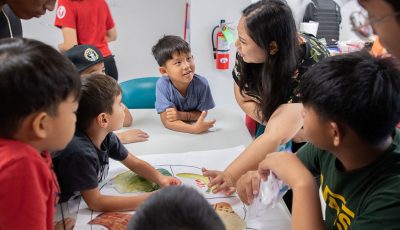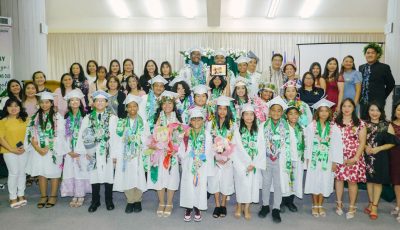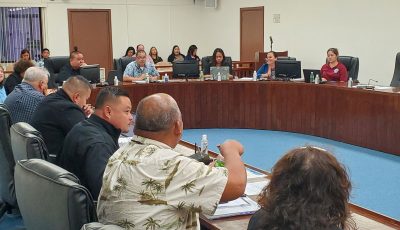Distance education cited for accelerating graduates
A total of 281 Marianas High School students are expected to take part in the Public School System’s Distance Education program, which MHS principal Sherlyn Cabrera credits for their all-time high number of 301 graduates last year.
“Some of our students, they want to advance themselves, they want to graduate early, challenge themselves so that’s why they took [the classes],” she said.
She said there were around 200-plus seniors, with the rest being juniors for next year’s graduating class.
It was reported earlier that the 301 graduating students were an MHS all-time high.
Cabrera said response has been “good” for the last several of Distance Education, which was implemented in school year 2010-2011 and provides as much as 49 online courses.
PSS was expected to have 45 eTeachers for its 1,500 students in the program for this school year, according to a statement this summer.
Usually students participating in the program have both “ground” classes, with face-to-face time with instructors, and online courses, according to Cabrera.
“It forces them to take charge of their learning and be independent learners,” she said of the program.
She related it to her experience as a graduate student, where even one online class was challenging.
“I just admire our students who were able to do it, [because] the rigor is there, the demand is there, and so they are really learning some really good skills,” she said.
While there is something “about the face-to-face” connection between teacher and student, she said the Distance Education program comes as another option for students as well as a system that lacks teachers.
“We have some students who are really sick, who can’t come to school, but they have access to Internet, and can continue their education,” she said, adding that some are also parents who are not able to find a babysitter for their children.
“For those kind of reasons, I think it’s a great option,” she said.
Not every student can avail of the program, however. Students in the program must be first recommended by their respective counselors.
“Sometimes [students] think they can just go to a computer shop in the village and do it once a week [but] they have to make sure they have the Internet support at home, from their parents, and that they as a student are able to do this, so if students are not very strong in their academics then they’re not recommended,” she said.



























